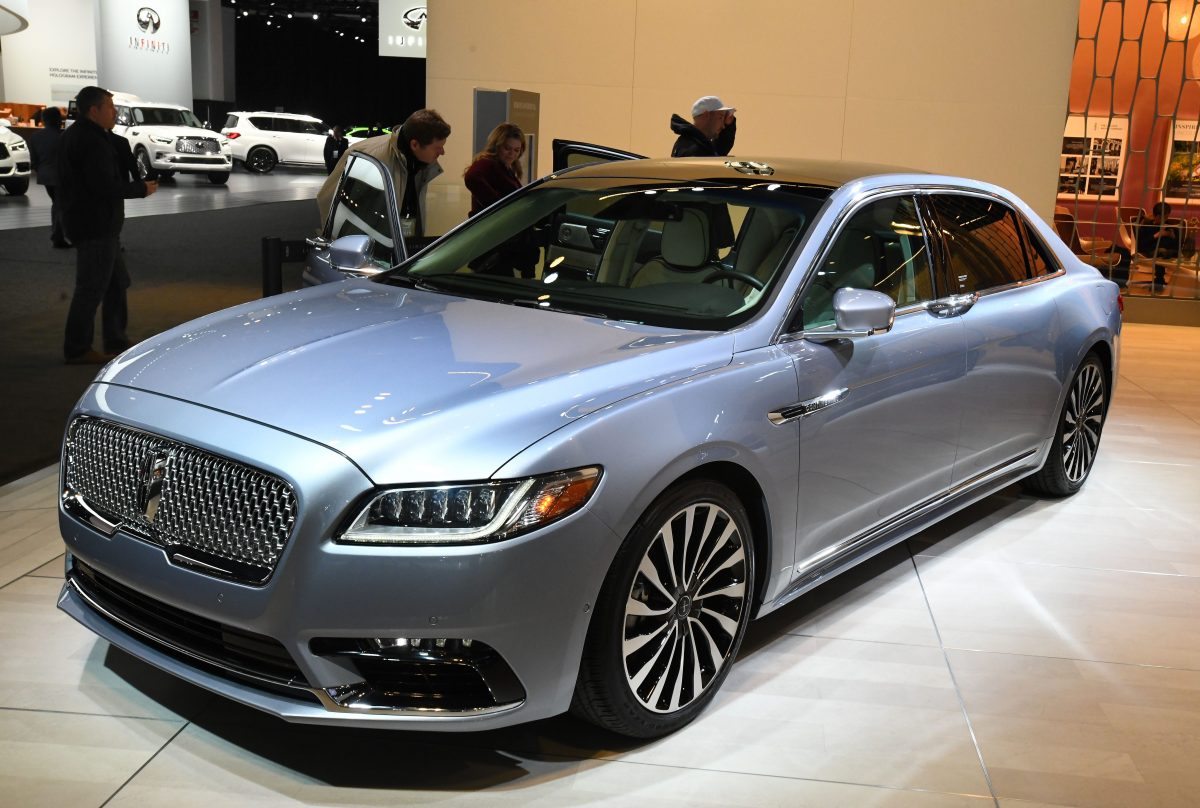Ford Motor Co. confirmed Wednesday it will permanently end production of the Lincoln Continental built at the Blue Oval’s Flat Rock Assembly Plant.
The move is just the latest in the Dearborn automaker’s long-term strategy of ditching sedans and compact cars in favor of a wider array of profit-rich trucks and SUVs that U.S. customers have come to prefer.
It also brings Ford a step closer to fulfilling the strategy it announced in 2018 of no longer producing traditional cars, except for such select models as the Mustang and its multiple variants. By axing the Continental, Lincoln’s lineup will be all-SUV since the brand previously announced the discontinuation of the other remaining car, the MKZ.
In confirming the discontinuation of the Continental, Lincoln emphasized its SUV lineup, which includes models such as the Aviator and Navigator: “Lincoln is investing in growth segments and the brand will feature a full portfolio of SUVs, including a fully-electric vehicle in the future,” spokeswoman Angie Kozleski said in a statement.
“Lincoln will continue to keep its newest SUVs fresh and we will have more news to share later this year; however, as the full-size premium sedan segment continues to decline in the U.S., we plan to end production of the Lincoln Continental at the end of this year.”
A 2021 model year Continental will be offered in Ford’s China market, before the model is discontinued there, as well: “The Continental has had a really rich past, but we’ll return the name to the vault after that,” Kozleski said.
The Flat Rock plant also produces the Mustang. Kozleski said Ford does not anticipate any layoffs as a result of discontinuing the Continental.
The Continental makes up just a small portion of Lincoln brand sales. In 2019, Ford sold just more than 6,400 Continentals, down nearly 25% from the previous year. The brand as a whole delivered more than 112,000 vehicles, most of them SUVs.
It makes economic sense for Ford to drop the Continental because the luxury sedan shares the same chassis as the Ford Fusion, and Fusion production is slated to end this year, said Karl Brauer, executive publisher for Cox Automotive. A Ford spokeswoman confirmed production of the Fusion will end this summer.
“That plant, that assembly line, that chassis, the R&D budget to keep evolving it, all of those things are more important for the volume model than the luxury model,” said Brauer. “If the volume model can’t exist, the luxury model is gone.”
But he said the new Continental was not just a “gussied up Ford Fusion: “Yes, somewhere in the heart of its chassis was a Ford Fusion, but they did such a good job on its exterior design and proportions … it looked like its own vehicle.”
The history of the Continental dates back to the World War II era. The Lincoln Zephyr Continental was introduced in 1939 and was “an immediate design icon,” according to a history of the model on Ford’s website. The Continental was commissioned by founder Henry Ford’s son, Edsel Ford. He headed up the Lincoln division at the time and wanted to make a vehicle reminiscent of the automobiles he encountered in Europe.
The original version of the Lincoln was discontinued for several years, before being revived in the 1950s as the Lincoln Continental Mark II.
The Continental and Fusion are just two victims on a long list of discontinued cars as sales have plummeted in recent years. General Motors Co. nixed its Cadillac XTS, a full-size luxury sedan, the Chevrolet Impala and Cruze. Fiat Chrysler Automobiles NV was the first to start exiting the car market with the Dodge Dart and Chrysler 200.
Now, with consumers favoring trucks and SUVs, automakers are resurrecting old, larger vehicle nameplates, including the Ford Bronco, GM’s Hummer and the Jeep Wagoneer.
jgrzelewski@detroitnews.com
Twitter: @JGrzelewski
khall@detroitnews.com
Twitter: @bykaleahall
Read or Share this story: https://www.detroitnews.com/story/business/autos/ford/2020/07/01/ford-send-production-lincoln-continental-after-2020/5359943002/
